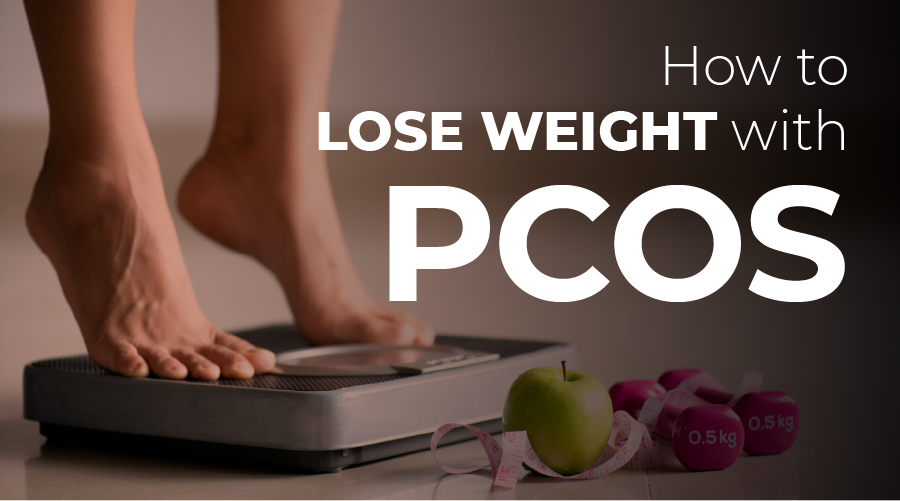Tackling PCOS Weight Loss in A Safe and Natural Way
PCOS Weight Loss – Polycystic Ovary Syndrome (PCOS) can present unique challenges, especially when it comes to managing weight. For many individuals with PCOS, shedding those extra pounds can be a daunting task. However, with the right approach, weight loss in PCOS is not only achievable but can also contribute to improved overall health. Let’s delve into effective strategies to navigate this journey successfully.

Understanding PCOS and Weight Gain
PCOS is a hormonal disorder that affects people with ovaries, often leading to irregular periods, ovarian cysts, and weight gain. Insulin resistance, a common feature of PCOS, can make it more challenging for individuals to maintain a healthy weight. Understanding this connection is crucial in devising a targeted approach to weight loss.
Tailoring Your Diet to PCOS
Adopting a PCOS-friendly diet is a key component of weight management. Focus on a balanced intake of complex carbohydrates, lean proteins, and healthy fats. Incorporating fiber-rich foods can aid in stabilizing blood sugar levels while choosing low-glycemic index options can help manage insulin resistance. Consider consulting with a nutritionist or a dietitian to create a personalized meal plan tailored to your specific needs.
Embracing Regular Exercise
Physical activity plays a pivotal role in weight loss for PCOS. Regular exercise helps improve insulin sensitivity, manages stress levels, and contributes to overall well-being. Aim for a mix of cardiovascular exercises, strength training, and activities that promote flexibility. Even small, consistent efforts can yield significant results over time. Therefore, you must stay connected with a professionally certified fitness trainer.
Supplements and Medications
In some cases, healthcare providers may recommend supplements or medications to support weight loss in efforts. Metformin, for instance, is commonly prescribed to address insulin resistance. Additionally, supplements like inositol and omega-3 fatty acids may have positive effects on hormonal balance and weight management. Moreover, a variety of studies establish scientific backing between seed cycling and PCOS weight loss.
Managing Stress and Sleep
Stress and inadequate sleep can exacerbate PCOS symptoms and hinder weight loss efforts. Prioritize stress-reducing activities such as meditation, yoga, or deep breathing exercises. Establishing a consistent sleep routine is equally important, as quality sleep plays a crucial role in hormonal regulation and metabolism.
Tracking Progress and Celebrating Success
Tracking your journey is essential for staying motivated. Monitor changes in weight, energy levels, and overall well-being. Celebrate small victories, and remember that weight loss in PCOS is a gradual process. Establishing realistic goals and acknowledging progress along the way can boost your confidence and commitment.
Do Supervised Dieting
A supervised dieting program under a medical doctor, dietitian, and fitness instructor can be your key to unlocking the mystery of the PCOS condition. Dr. Ikram’s Diet & Weight Loss Clinic offers such a safe and natural option that can not only help you lose and maintain ideal weight and optimal figure but can also help you successfully manage and control the most bothersome PCOS signs and symptoms. Furthermore, DI Clinic’s subsidiary, Your Diet Kitchen offers customized and personalized, calorie-counted PCOS diet meal delivery right at your home if you are located in Karachi.
All in all, weight loss in PCOS requires a multifaceted approach that addresses the hormonal imbalances characteristic of the condition. By focusing on a PCOS-friendly diet, incorporating regular exercise, considering supplements or medications, managing stress, and prioritizing adequate sleep, individuals can navigate their weight loss journey with success. Consulting with healthcare professionals and creating a personalized plan ensures that the approach is tailored to individual needs, fostering sustainable and long-term results.
